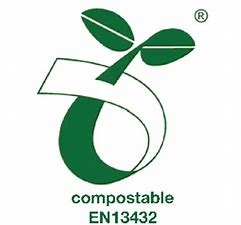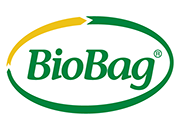Plastic. It’s not something most of us want to spend too long thinking about.
Many people understand that single-use plastics are polluting our world. Shopping bags, plastic bottles, disposable coffee cups. Consumers want to reduce their use of the wrong type of plastic but understandably they want it to be easy. So, a disposable cup showing the recyclable logo, a plastic bin bag proudly saying it’s ‘biodegradable’. These are good choices. Right?
Well … not always unfortunately. In Ireland today, many types of plastic still can’t be recycled. This includes soft plastics which are marked as ‘recyclable ’ because facilities to recycle them may exist in other territories, but not in this country. So, the recycling symbols which you might see on plastic shopping or refuse bags are meaningless. The technology to recycle soft plastics has never been available in Ireland so these plastics will be taken off the conveyor belt in a recycling plant and burnt.
’ because facilities to recycle them may exist in other territories, but not in this country. So, the recycling symbols which you might see on plastic shopping or refuse bags are meaningless. The technology to recycle soft plastics has never been available in Ireland so these plastics will be taken off the conveyor belt in a recycling plant and burnt.
Also, there are no standards for labelling plastics in this country. So many plastic bags say that they are ‘biodegradable’. Sounds great doesn’t it? But what this often means is that the bags are ‘Oxo-degradable’. This means that they can seem to ‘break down’ and disintegrate in the environment but in fact such plastics leave behind millions and millions of tiny pieces of micro-plastic in our soil and water. Oxo-degradable refuse bags are currently being used in Irish schools, institutions and sold in Irish shops; lulling consumers and businesses into a false sense of security that they are making environmentally sound choices and reducing their use of single-use plastics.
The European Commission published a report in January 2018 and concluded that oxo-degradable bags were “not suited for long-term use, recycling or composting”. The European Parliament has asked the Commission to consider banning Oxo products by 2020. The EU Parliament has also passed a directive in April banning the word ‘biodegradable’ in related to ‘Oxo’ technology products. However, given how long it is taking to enact the recommendations on plastic microbeads in personal care products and toiletries, it could be years before oxo-plastics are removed from our shelves, if ever.
BioBag Ireland & UK believes the Irish government should take a stand on Oxo-degradable plastics and, at the very least, introduce standards for how plastics are labelled in Ireland. Even better would be a total ban on Oxo products in Ireland to counteract the pollution being caused by microplastics in our oceans, rivers and countryside. A ban needs to be supported with the education of us as consumers, retailers, producers and manufacturers on the need to reduce our use of plastics and of how to dispose of them.
BioBag products are ‘compostable’ not just biodegradable and certified according to the European Standard EN 13432, amongst others. Our bags are made from a naturally derived resin and can be composted with food and organic household waste in an industrial composting facility or in a home composter. BioBag bags return to the earth as compost, in the right conditions, leaving no harmful residues behind. Now that’s not rubbish …

One comment
What naturally derived products are the bags made from ? Thanks
Our apologies, you must be logged in to post a comment.